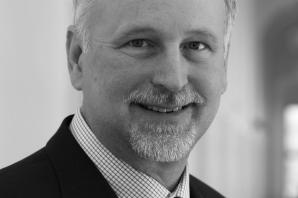Although human wellbeing has been a topic of discussion for centuries, assessments of the subject have often focused on narrow demographic groups and missed the bigger picture. With European Research Council (ERC) support, a leading demographer aims to change the way we think about happiness and wellbeing by seeing the future of humanity through the prism of global sustainable development.

Professor Wolfgang Lutz, from the International Institute for Applied Systems Analysis (IIASA), Austria, is focused on the big picture. One of his key objectives is to provide researchers with the tools to accurately assess global wellbeing through the analysis of whether human development is moving in the right direction or not. “My project is essentially about answering the ultimate questions of humankind, things that have been debated since the ancient Greek philosophers,” he says. “What is the good life? What are the preconditions to improving human wellbeing?”
Traditionally, there have been two main avenues to examining these questions; one that focuses on personal happiness, the other on objective conditions such as income, life expectancy, years of schooling and health. The World Happiness Report is an example of the former, while the UN’s Human Development Index is an example of the latter.
“A third community, of which I feel a part, is the sustainable development research community,” says Prof. Lutz. “This sees human wellbeing as a function of different capital, such as physical, financial, human and environmental.” Taken together, these capitals produce human wellbeing. This interdisciplinary way of looking at systems of global change enables researchers to see how stocks of capital change over time.
Prof. Lutz saw the need to develop a means of holistically measuring the dynamics of human wellbeing within certain periods of time, in order to better understand what we mean when we talk about living well. According to Prof. Lutz, the base requirement for measuring someone’s wellbeing is that the person in question is alive. To put it simply, this is because the person must be alive in order to have the capacity to possess a good quality of life. But since ‘survival’ is not sufficient as an ultimate goal for most people, ‘years lived’ at each age should only be counted as ‘good’ if people meet or exceed the minimum levels for other, more specific criteria – namely the subjective question of life satisfaction, and the objective criteria of being in cognitive and physical health and out of absolute poverty.
"The aim is to develop metrics that can be compared across populations, even sub-populations, and are not something that can be quantified at the national level only,” he says. “An important point of the Sustainable Development Goals (SDGs) is that no-one should be left behind.” Prof. Lutz is a leading academic in the field of sustainable development and was one of the scientists appointed by the UN to write the Global Sustainable Development Report 2019 ‘The Future is Now’.
Prof. Lutz’s current work builds on a previous ERC-funded project, which sought to analyse what can be done to enhance the future wellbeing of everyone. The project took into account issues such as environmental change and political instability, and set the groundwork for the current initiative.
“The first ERC grant came at about the same time as I won the Wittgenstein Award, and with these resources I was able to launch the Wittgenstein Centre for Demography and Global Human Capital here in Vienna,” says Prof. Lutz. “This is becoming a global centre of expertise and training for the next generation of macro-level researchers working in demography. The ERC has enabled me to look at the biggest possible picture, and to not be distracted by daily operations and the need to raise funds.”
Running until 2022, the preliminary results from Prof Lutz’s current ‘Years of Good Life’ project have already been published in an IIASA Working Paper and are currently under consideration for publication in the US Proceedings of the National Academy of Sciences (PNAS). “We’re not modest about our ambitions,” he says. “We need to reframe the question of what the future is for humanity in terms of global sustainable development. There is an urgent need for a clear sense of priority, in part because the SDGs have so many targets.”
Biography
Wolfgang Lutz is Founding Director of the Wittgenstein Centre for Demography and Global Human Capital, a cooperation between University of Vienna (where he is Professor at the Department of Demography), IIASA (where he directs the World Population Program), and the Austrian Academy of Sciences (where he is Scientific Director of the Vienna Institute of Demography). He holds a PhD in Demography from the University of Pennsylvania. He has widely published on international population trends with a special focus on population forecasting, population-development-environment interactions and introducing education as a standard demographic dimension in addition to age and sex. He has published over 260 scientific articles, including 13 in Science and Nature. His most recent book is entitled “Demographic and Human Capital Scenarios for the 21st Century: 2018 Assessment for 201 Countries.” He has won prestigious awards including two ERC Advanced Grants, the Wittgenstein Prize, the Mattei Dogan award of the IUSSP and the Mindel C. Sheps Award of PAA. He is member of the Austrian Academy of Sciences, the Leopoldina, the World Academy of Sciences (TWAS), the Finnish Society for Sciences and Letters, the US National Academy of Sciences (NAS), and the Academia Europea.





